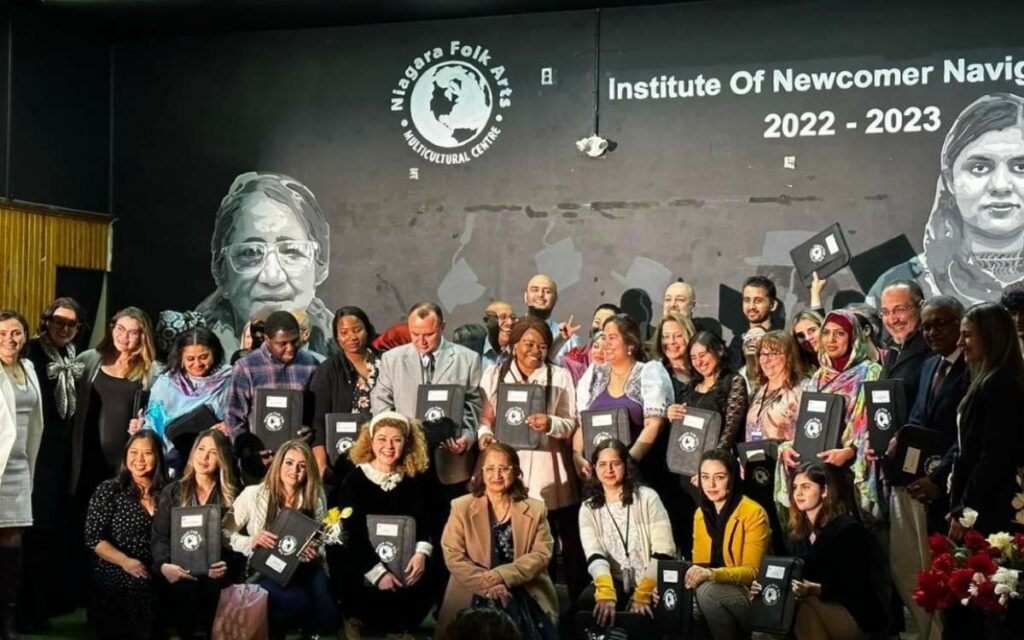
Program graduates at the Niagara Folk Arts Multicultural Centre in St. Catharines. Supplied photo.
Last year, the Niagara Folk Arts Multicultural Centre (NFAMC) debuted the Healthcare Navigator Training Program for Internationally Educated Healthcare Professionals (IEHPs). The program consisted of trained professionals supporting newcomers when they accessed Ontario’s healthcare system and sought to help integrate IEHPs into the healthcare workforce.
Since 2020, the NFAMC has been monitoring IEHPs in the Niagara Region who were helping out during the start of the pandemic. During the registration process the NFAMC reached out to over 100 IEHPs that met the requirements, however, the number of participants that completed the pilot program was 50.
“Belonging, Reciprocity and Competency were the main features of this program. IEHPs were able to gain information about the Ontario Healthcare Ecosystem, and employers and organizations were able to gain valuable knowledge about IEHPS in terms of their skills and understanding of healthcare,” Kim O’Rourke, job developer at NFAMC, told The Niagara Independent via email. “IEHPS were able to share their knowledge of practices from their home countries and cultural understanding in relation to Newcomers’ healthcare needs.”
Program participants were provided alternative career pathways in the field, familiarization with Ontario’s healthcare system, a sense of belonging, and the ability to showcase health competency.
“The main takeaway from this program was that it provided a community and a professional support system for IEHPs in the Region. In July, our registration event was the first gathering of its kind in the Niagara Region to understand their needs. The focus group facilitated by Brock University provided a forum to speak openly about their future careers and pathways in the medical field,” said O’Rourke.
The future of the program looks promising. In its first year, the NFAMC worked with over 30 partners. As more organizations and services find out about the program, this number is anticipated to increase.
“Healthcare Navigation is a newer concept in Canada, but organizations and Health systems are starting to see the value of this position,” said O’Rourke.
The in-class portion served as a preparation period as it provided an understanding of the healthcare system in Ontario. IEHPs were equipped with the tools to take into the placement portion of the program where they were able to put their skills to work.
Some of the organizations that received participants were: Senior Care and Niagara Health, Quest Community Health, Niagara Medical Group, Positive Living, Wellspring Niagara, Chez Marie Refuge, Homeinstead Niagara, Pharmasave, and Pharmastar pharmacies.
“Before this program, I had actively sought a health-related job which is one of many IEHPs’ goals in Canada. I knew this program would help me strengthen my resume and network, but it has given me more. Engaging in real-world scenarios in our placement allowed us to exchange ideas and better recognize patient needs, priorities, and healthcare systems’ challenges. Now, as a Navigator, I will take my steps more confidently,” said Ozen Unsac, an internationally educated pharmacist, and participant in the program.
Now that the pilot is done, the group is currently waiting for round three provincial funding, as well as the federal Employment and Social Development (ESDC) funding for the possibility of making the model permanent.
While they wait for answers, employment services are being offered to all IEHPs to help them understand the processes for licensure in Ontario/Canada depending on their profession.






